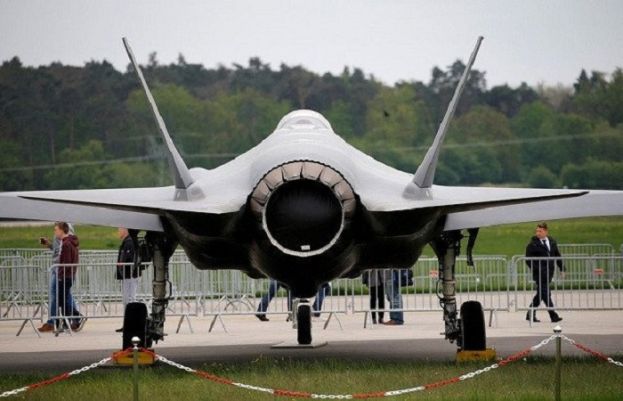
The deal was signed under then-President Donald Trump after the UAE forged ties with Israel last year but progress on the sale had slowed amid concerns in Washington, including over the Gulf Arab state's ties with China, a main trade partner.
"The UAE has informed the US that it will suspend discussions to acquire the F-35," a UAE official told Reuters on Tuesday, citing "technical requirements, sovereign operational restrictions, and cost/benefit analysis".
The official said talks may be re-opened in the future and that there were discussions to "address mutual defense security conditions for the acquisition".
In Kuala Lumpur on Wednesday, Secretary of State Antony Blinken said Washington was prepared to move forward with the sale.
"We've wanted to make sure, for example, that our commitment to Israel's qualitative military edge is assured, so we wanted to make sure that we could do a thorough review of any technologies that are sold or transferred to other partners in the region, including the UAE," Blinken said.
The UAE had signed a deal to purchase 50 F-35 stealthy jets made by Lockheed Martin, up to 18 MQ-9B drones and advanced munitions, sources told Reuters in January.
The UAE hosted Israel's prime minister this week. Asked if the F-35 deal and Israeli qualitative military edge had come up, his spokeswoman said only that Israel had received no requests from Abu Dhabi on these matters.
A person briefed on the negotiations said sticking points between the United States and the UAE revolved around how the jets can be deployed and how much of the sophisticated F-35 technology the Emiratis will be allowed to take advantage of.
"The Americans want to sell the Emiratis the planes but they want to tie their hands," another person, a Gulf source, said following the talks.
The source, speaking on condition of anonymity, said defence deals include requirements for purchasing nations, but that the restrictions in this deal made it unfeasible.
In 1998, the UAE selected Lockheed's F-16 Block 60 fighter jet but the deal dragged over access to software source codes and other technology release issues until the sale went through in 2000.
Earlier this month, the Gulf state ordered 80 French-made Rafale warplanes after on-off negotiations for more than a decade. A UAE defence official had said the Rafale deal was complementary to, and not a substitute, for the F-35s.
The Emirati official said the United States, on whose security umbrella Gulf Arab states rely heavily, "remains the UAE's preferred provider for advanced defense requirements".
Pentagon spokesman John Kirby has said Washington is committed to working with Abu Dhabi to address its questions, anticipating the weapons sale would come up at a meeting of US and UAE officials at the Pentagon this week.
from latest-news - SUCH TV https://ift.tt/3oWXIo4



0 comments: